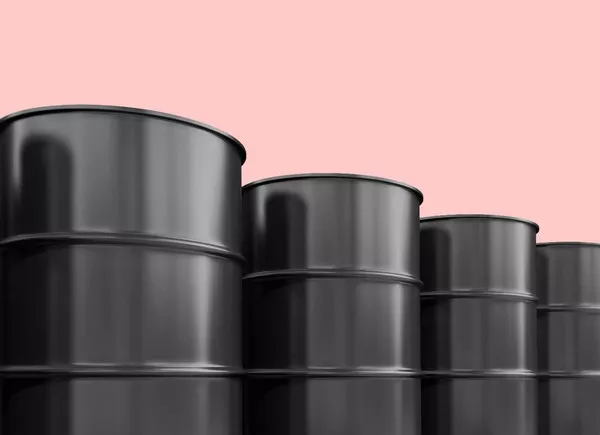The rise in oil futures prices is influenced by a myriad of factors that impact supply, demand, and market sentiment in the global oil market. As one of the most actively traded commodities, oil futures serve as a barometer for economic health and geopolitical stability worldwide. In this comprehensive analysis, we delve into the primary drivers behind the surge in oil futures prices, ranging from supply disruptions to economic indicators and geopolitical tensions.
Supply Disruptions
One of the most significant factors contributing to the rise in oil futures prices is supply disruptions. These disruptions can occur due to various reasons, including geopolitical conflicts, natural disasters, technical failures, or labor strikes. When major oil-producing regions experience supply disruptions, such as pipeline outages, refinery fires, or political unrest, it can lead to a reduction in global oil supply, causing futures prices to spike as market participants anticipate supply shortages.
For example, geopolitical tensions in the Middle East, a region known for its significant oil reserves and production capacity, can disrupt oil supply chains and trigger volatility in oil futures markets. Conflicts or political instability in oil-producing countries like Iraq, Iran, or Saudi Arabia can lead to concerns about potential supply disruptions, driving up oil futures prices as traders factor in geopolitical risks.
Demand Growth
Demand growth is another critical factor driving the rise in oil futures prices. Economic expansion, industrial activity, and transportation needs contribute to increasing global demand for oil and petroleum products. As economies grow and populations expand, the demand for energy, including oil, tends to rise, leading to higher oil futures prices as market participants anticipate increased consumption and tighter supply-demand balances.
Emerging markets, such as China, India, and other developing countries, play a significant role in driving global oil demand growth. Rising incomes, urbanization, and industrialization in these regions drive up energy consumption and fuel demand for oil-based products. As a result, any signs of robust economic growth or increasing energy consumption in emerging markets can lead to higher oil futures prices as traders anticipate stronger demand in the future.
OPEC Production Cuts
The Organization of the Petroleum Exporting Countries (OPEC) and its allies, including non-OPEC oil-producing nations like Russia, often implement production cuts or output quotas to manage oil supply and stabilize prices. When OPEC announces production cuts or extends existing agreements to limit oil production, it can lead to a reduction in global oil supply and support higher oil futures prices.
OPEC’s decisions to adjust oil production levels in response to market conditions, geopolitical factors, or economic considerations can have a significant impact on oil futures prices. Traders closely monitor OPEC meetings, announcements, and compliance with production quotas to gauge the potential impact on oil supply and futures prices. Any indications of coordinated efforts to support oil prices through production cuts can lead to bullish sentiment and higher oil futures prices.
Economic Indicators
Economic indicators play a crucial role in shaping market expectations and influencing oil futures prices. Key economic indicators, such as GDP growth, employment figures, manufacturing data, and consumer sentiment surveys, provide insights into the health of the global economy and energy demand trends. Positive economic data releases can fuel optimism about future energy consumption and drive up oil futures prices as traders bet on stronger demand.
For example, robust economic growth in major oil-consuming regions like the United States, Europe, and Asia can boost oil demand and support higher oil futures prices. Conversely, signs of economic weakness or recessionary pressures may dampen energy demand expectations and weigh on oil futures prices as traders adjust their outlook for future consumption.
Geopolitical Tensions
Geopolitical tensions and conflicts in key oil-producing regions can elevate uncertainty and risk premiums in oil futures markets, leading to higher prices. Geopolitical factors, such as military conflicts, trade disputes, sanctions, or regime changes, can disrupt oil supply chains, threaten production facilities, or disrupt transportation routes, causing futures prices to rise as traders factor in geopolitical risks.
For instance, tensions in the Persian Gulf, a critical transit route for oil tankers and a major hub for global oil production, can trigger concerns about potential supply disruptions and lead to higher oil futures prices. Similarly, trade tensions between major economies or political instability in oil-producing countries can impact market sentiment and drive up oil futures prices as traders seek to hedge against geopolitical risks.
Speculative Trading
Speculative trading activity by institutional investors, hedge funds, and individual traders can contribute to short-term fluctuations and volatility in oil futures prices. Speculators often buy or sell oil futures contracts based on expectations of future price movements, rather than physical supply and demand fundamentals. Increased speculative buying pressure can lead to higher oil futures prices as traders bet on rising prices or seek to profit from short-term price swings.
Conversely, speculative selling pressure can drive down oil futures prices as traders take bearish positions or unwind existing long positions. Speculative trading activity is influenced by factors such as technical analysis, market sentiment, news events, and macroeconomic trends, which can amplify price movements and create trading opportunities for speculators in oil futures markets.
Conclusion
In conclusion, the rise in oil futures prices is influenced by a complex interplay of factors, including supply disruptions, demand growth, OPEC production cuts, economic indicators, geopolitical tensions, and speculative trading activity. Understanding these factors and their impact on oil futures prices is essential for traders and investors seeking to profit from price movements in the oil market.
By monitoring key developments, analyzing market trends, and staying informed about geopolitical events, economic indicators, and production dynamics, traders can identify trading opportunities, manage risk effectively, and make informed decisions in oil futures markets. Whether trading for speculative purposes or as part of a diversified investment strategy, staying informed and proactive is crucial for success in the dynamic and ever-evolving oil futures market.

